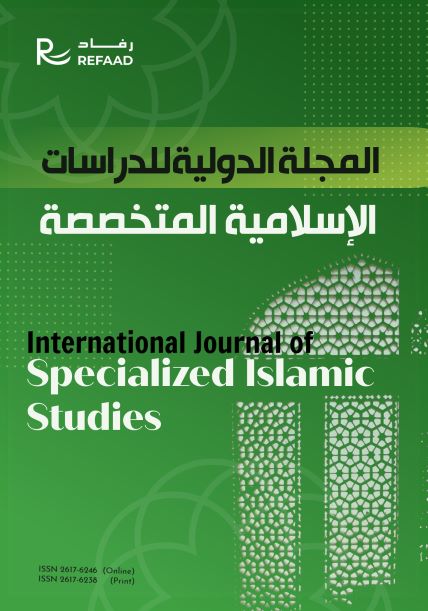International Journal of Specialized Islamic Studies (SIS) is a peer-reviewed, open-access journal, published Quarterly by Refaad. The journal aims to spread scientific knowledge in the field of Islamic studies in its various branches: Creed, Interpretation, Hadith, Fiqh, and Usul al-Fiqh. As well as addressing contemporary problems and future challenges from the point of view of Islamic law. It also aims to activate the movement of scientific research in various legal issues by providing the opportunity for researchers and scholars to publish their scientific and research output that meets the conditions for scientific research in the field of Islamic studies.
30 (Days)
Median time to first decisionManifestations of Renewal in Hadith Studies in Al-Bukhari's Sahih
Objectives: This study aims to highlight aspects of renewal in the science of Hadith according to Al-Bukhari in his Sahih. Methods: The study employed inductive and analytical methods. Conclusions: The research showed a number of results, most notably: Imam Al-Bukhari preceded other imams ...
The Liberal Position on Religious Texts and Objectives of Islamic Law
Objectives: This study aims to clarify the true stance of liberalism toward religion and the Holy Qur'an. Methods: The study adopted the inductive method, whereby the researcher traced the ideas of the liberals from their sources and consulted as many of their works as possible, providing ...
The Hadith of the One Who Prayed Incorrectly: Authentication and Study
Objectives: This study aims to collect the chains of transmission (isnads) and wordings of the ḥadīth of the one who performed his prayer incorrectly, to provide an extensive scholarly takhrīj (hadith authentication), to examine its chains of transmission, and to identify the soundly preserved ...
Female Successors (Tābi'āt) Who Narrated in the Six Books (Al-Kutub al-Sittah): Their Geographical Distribution and Narrations (An Analytical Statistical Study)
Objectives: This study aims to identify the Female Successors (Tābi'at) whose narrations were included in the Six Canonical Hadith Collections (Al-Kutub al-Sittah), to analyze their geographical distribution across major Islamic centers, and to enumerate their narrations without repetition. ...



